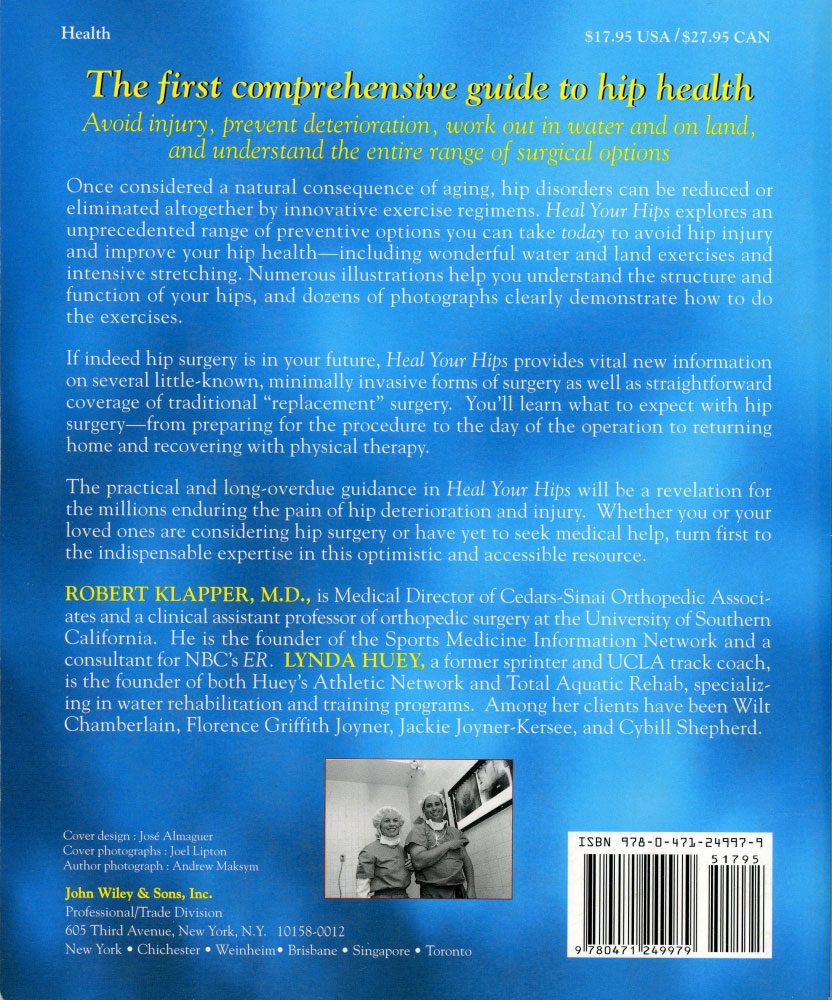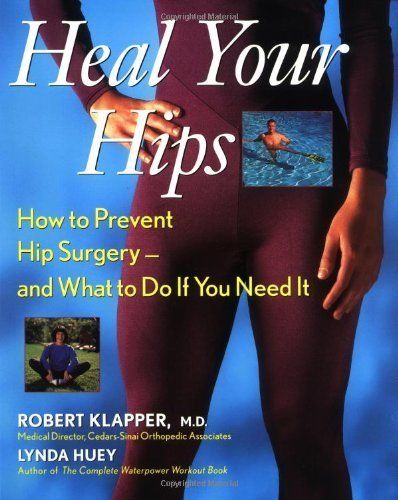Heal Your Hips: How to Prevent Hip Surgery and What to Do If You Need It
Introduction:
Hip problems can significantly impact our mobility and quality of life. However, the good news is that there are ways to prevent hip surgery and manage hip issues effectively. In this article, we will explore different strategies and techniques that can help you heal your hips naturally and avoid the need for surgery. We’ll also discuss what to do if surgery does become necessary. So, let’s delve into the world of hip health and discover how you can take control of your hip wellness.
Heading 1: Understanding Hip Health
Subheading: The Importance of Hip Health
Proper hip health is essential for our overall well-being. Our hips are responsible for supporting our body weight and facilitating movement. When hip problems arise, they can lead to pain, discomfort, and limited mobility. By understanding the significance of hip health, we can proactively take steps to prevent issues from arising in the first place.
Subheading: Common Hip Problems
There are several common hip problems that people may experience. These include hip fractures, osteoarthritis, hip bursitis, tendonitis, and hip dysplasia. Each condition has its own set of causes and symptoms, but they all potentially result in pain and decreased functionality.
Heading 2: Preventing Hip Surgery
Subheading: Maintaining a Healthy Lifestyle
Leading a healthy lifestyle is crucial for preventing hip problems. Regular exercise, maintaining a healthy weight, and avoiding risky activities that put strain on the hips can significantly reduce the chances of requiring hip surgery. Engaging in low-impact exercises such as swimming, cycling, and walking can help strengthen the muscles around the hip joint and improve overall hip stability.
Subheading: Proper Nutrition for Hip Health
A balanced diet filled with essential nutrients plays a significant role in maintaining healthy joints, including the hips. Consuming foods rich in omega-3 fatty acids, antioxidants, and vitamins can aid in reducing inflammation and promoting joint health. Incorporating foods such as fish, nuts, leafy greens, and fruits into your diet can be beneficial for your hips.
Subheading: Hip-Strengthening Exercises
Specific exercises can help strengthen the muscles surrounding the hip joint, providing stability and preventing injuries. Examples include hip bridges, clamshells, leg raises, and squats. These exercises target the glutes, hip flexors, and external hip rotators, promoting the overall strength and stability of the hips.
Heading 3: Non-Invasive Treatments for Hip Issues
Subheading: Physical Therapy
Physical therapy is a non-invasive treatment approach that can help manage hip pain and improve hip function. A skilled physical therapist can develop an individualized treatment plan, including exercises and stretches to alleviate pain, improve flexibility, and strengthen the hip muscles. With consistent therapy, many individuals can avoid surgery altogether.
Subheading: Alternative Therapies
In addition to physical therapy, alternative therapies such as acupuncture, chiropractic care, and massage therapy may offer relief for hip problems. These treatments focus on reducing inflammation, improving blood circulation, and promoting overall healing.
Heading 4: When Surgery Becomes Necessary
Subheading: Considering Surgical Options
While preventing surgery should be the primary goal, there are instances where surgical intervention becomes necessary. Consulting with an orthopedic specialist is crucial for determining the best course of action. Surgical options can range from hip arthroscopy to hip replacement, depending on the severity of the condition and individual circumstances.
Subheading: Post-Surgery Rehabilitation
Rehabilitation plays a vital role in the success of hip surgery. Following surgery, physical therapy and rehabilitation exercises aim to restore strength, flexibility, and joint function. Working closely with a physical therapist during rehabilitation can maximize the benefits of surgery and ensure a seamless recovery process.
Conclusion:
Hip health is a crucial aspect of our overall well-being. By incorporating healthy lifestyle choices, performing hip-strengthening exercises, and seeking non-invasive treatments when needed, we can prevent the need for hip surgery. However, in cases where surgery is unavoidable, proper post-surgery rehabilitation is key. Remember, the goal is to keep your hips healthy, pain-free, and fully functional so that you can continue enjoying an active and fulfilling life.
FAQs:
1. Can I prevent hip surgery by maintaining a healthy weight?
Maintaining a healthy weight is crucial for preventing hip problems as excess weight can put strain on the hips and increase the risk of developing hip issues. However, it is essential to remember that individual circumstances vary, and surgery may still be necessary in some cases.
2. Are there any natural remedies for managing hip pain?
While there is no cure-all for hip pain, some natural remedies may help alleviate discomfort. These include applying ice or heat packs, performing gentle stretches, and taking over-the-counter pain relievers, if suitable for you. It is always best to consult with a healthcare professional before trying any new remedies.
3. How long does it take to recover from hip surgery?
Recovery time after hip surgery varies depending on the type of procedure performed, individual health, and adherence to post-operative rehabilitation. Generally, it takes several weeks to several months to fully recover and regain normal hip function.
4. Can hip dysplasia be corrected without surgery?
In infants and young children, hip dysplasia may be corrected without surgery through the use of methods like braces or harnesses. However, in adults with hip dysplasia, surgery may be required to address the underlying anatomical abnormalities and alleviate pain.
5. Is it possible to prevent hip problems as we age?
While we cannot guarantee complete prevention of hip problems, adopting healthy habits like maintaining an active lifestyle, regular exercise, and proper nutrition can significantly reduce the risk of developing hip issues as we age. It’s essential to prioritize hip health throughout our lives to ensure mobility and quality of life in the long run.
Remember, taking care of your hips through preventive measures and prompt interventions can make a significant difference in your overall hip health and well-being.
Gallery
Heal Your Hips | CompletePT Pool & Land Physical Therapy

Photo Credit by: bing.com / hips
Heal Your Hips: How To Prevent Hip Surgery — And What To Do If You

Photo Credit by: bing.com / hips heal
Can Your Hips Store Trauma? How To Heal Tight Hips | The Stellar Calm*

Photo Credit by: bing.com / trauma heal
[BEST SELLING]#5 Heal Your Hips: How To Prevent Hip Surgery And What
![[BEST SELLING]#5 Heal Your Hips: How to Prevent Hip Surgery and What](https://cdn.slidesharecdn.com/ss_thumbnails/heal-your-hips-how-to-prevent-hip-surgery-and-what-to-do-if-you-need-it-191218024446-thumbnail-4.jpg?cb=1576637100)
Photo Credit by: bing.com / heal surgery
Heal Your Hips: How To Prevent Hip Surgery — And What To Do If You

Photo Credit by: bing.com /






